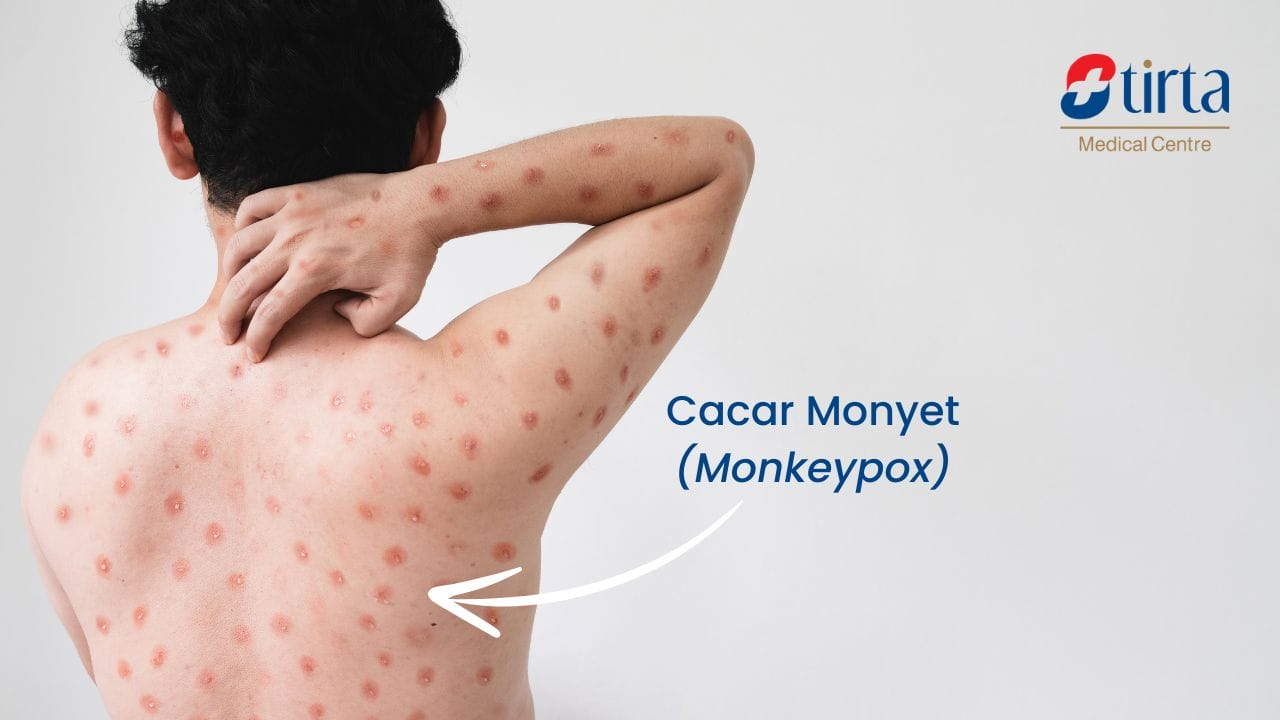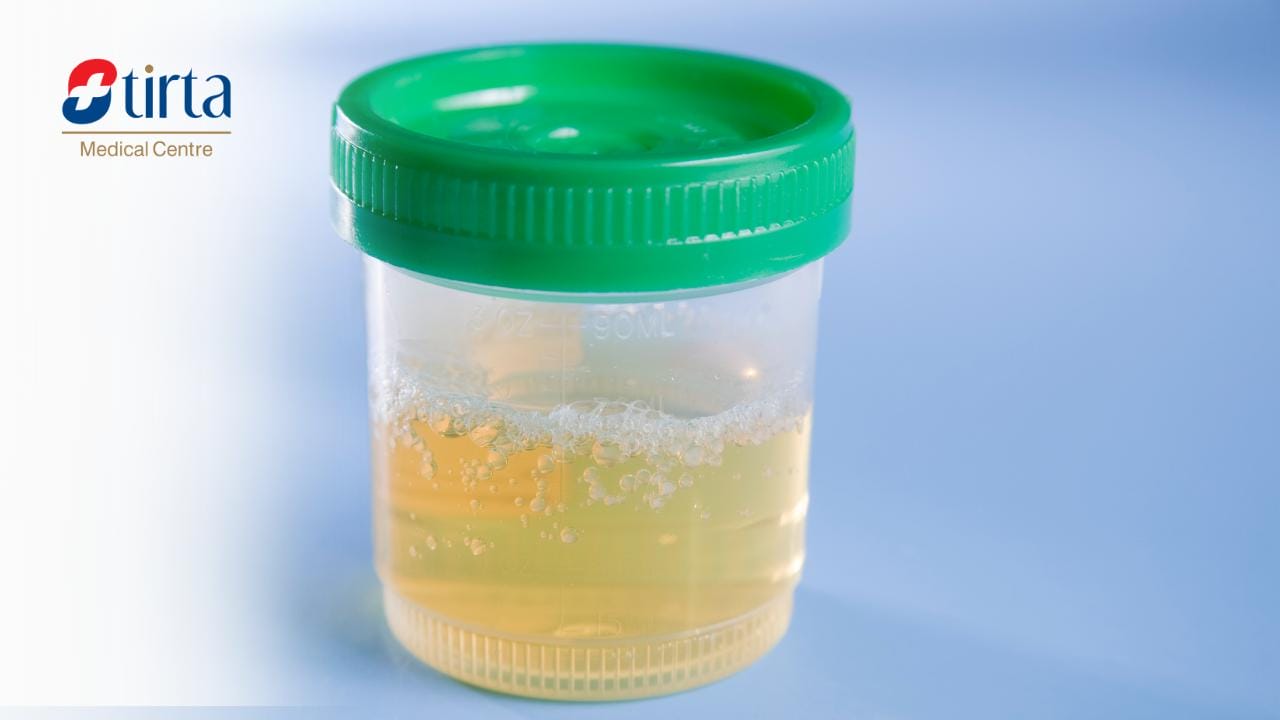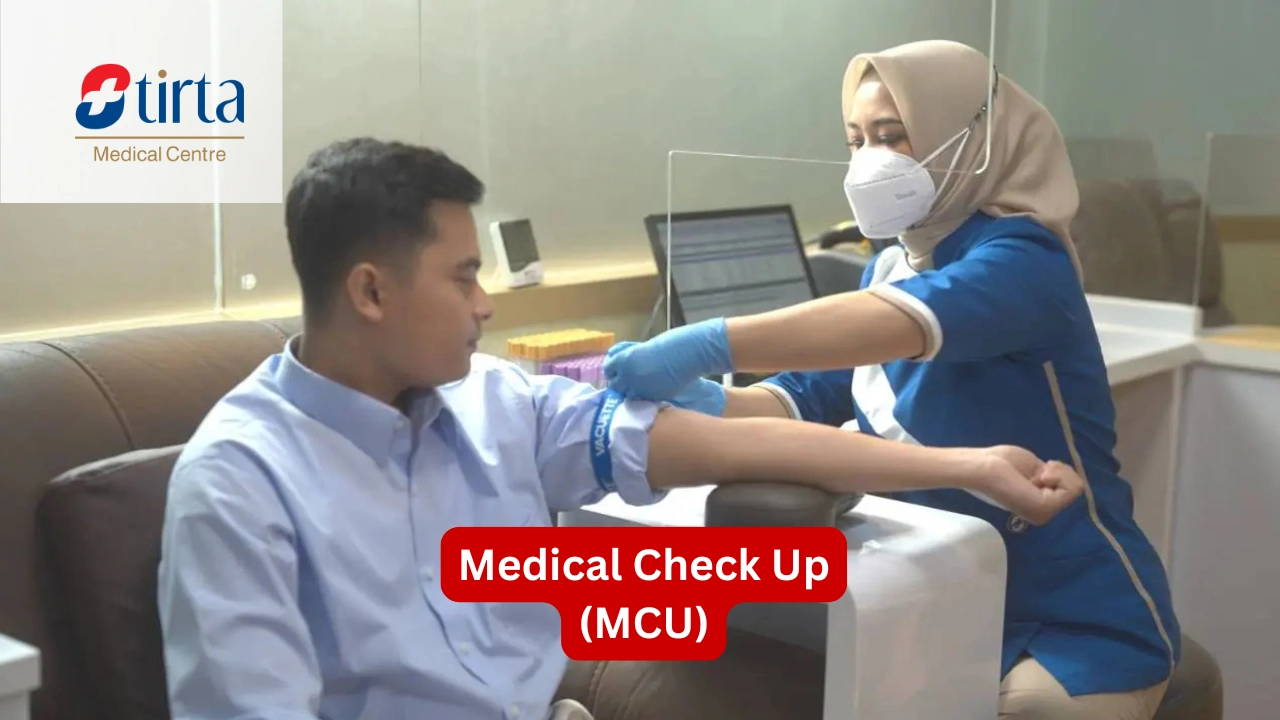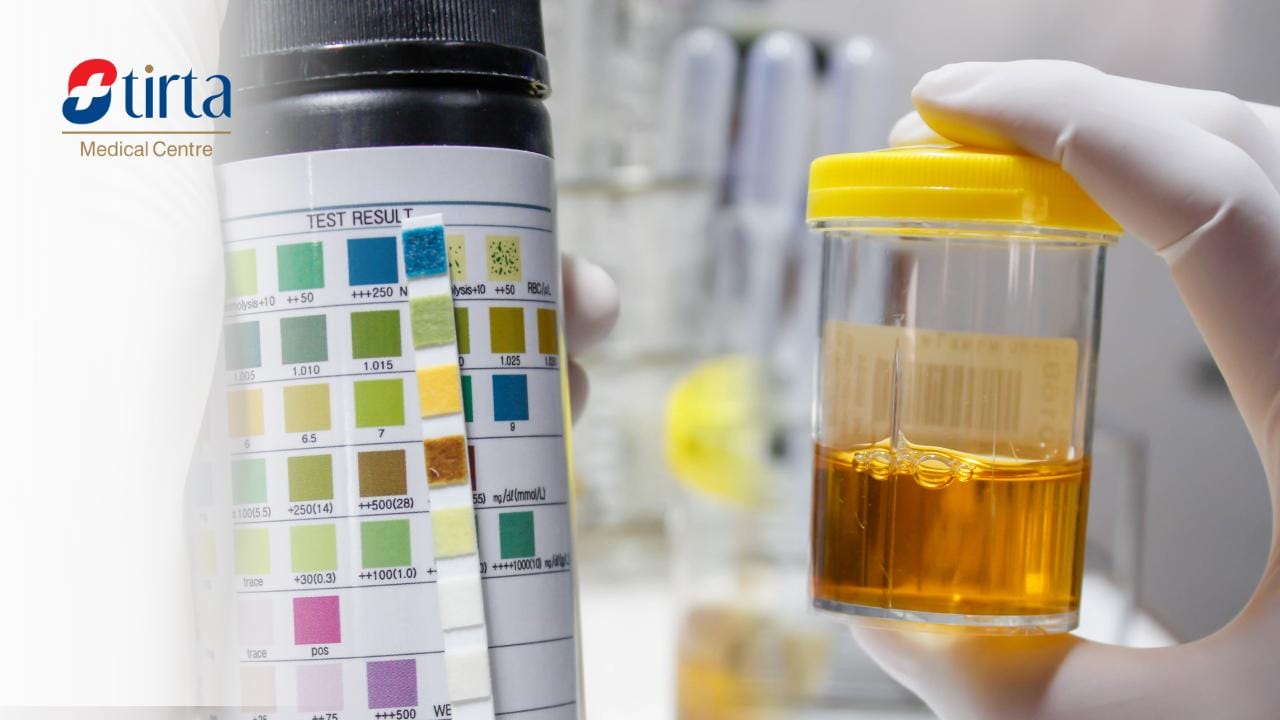Monkeypox is a contagious disease caused by a virus, which can be transmitted from animals to humans and between humans. The disease was discovered in Denmark in 1958 and has been getting more attention worldwide, including in Indonesia, due to an increase in cases in recent years.
Monkeypox symptoms resemble those of chickenpox, including fever, rash, and swollen lymph nodes, and can last for 2–4 weeks. Vaccination and preventive measures are important to control the spread of the disease, even though there is no specific treatment available at the moment.
Monkeypox Cases in Indonesia
Monkeypox has become a serious concern in Indonesia since the first case was discovered in Jakarta in October 2023. Cases in Indonesia started to be detected in 2022 along with the global increase in cases, as reported by the Indonesian Ministry of Health.
The World Health Organization (WHO) said monkeypox is a serious global health issue, after cases were found in over 70 countries in July 2022.
In response, the Indonesian government has taken significant steps to control the virus’s spread. The Ministry of Health has issued advisories to the public to enhance vigilance and strengthen preventive measures. To prevent monkeypox, efforts include better surveillance, educating the public, and vaccinating high-risk groups.
Transmission of monkeypox in Indonesia is suspected to occur by contacting infected animals or infected individuals.
The virus can spread through respiratory droplets or contact with open wounds of an infected person. Therefore, it is important for the public to avoid contact with wild animals and maintain personal hygiene to prevent transmission.
The Indonesian government is working with international agencies to make sure there are enough monkeypox vaccines and treatments for the people. These measures are expected to suppress the spread of monkeypox and protect overall public health.
By taking preventive measures and working together, we can effectively control the spread of monkeypox in Indonesia.
Symptoms of Mpox
Now known as mpox, monkeypox exhibits symptoms similar to flu and distinctive skin rashes. Common symptoms of monkeypox include:
- Fever
- Headache
- Muscle and back pain
- Swollen lymph nodes
- Fatigue
- Skin rash
These symptoms usually appear 1 to 3 weeks after exposure to the virus. The rash changes from red spots to blisters, then dries and forms crusts before falling off in 2 to 4 weeks.
Causes of Monkeypox
Monkeypox is an infectious disease caused by the monkeypox virus, which belongs to the Orthopoxvirus genus and the Poxviridae family. This disease can spread from animals to humans through direct contact with infected animals’ blood, body fluids, or skin lesions.
Animals suspected to be natural reservoirs of this virus include small rodents and non-human primates such as monkeys. Human-to-human transmission occurs through close contact, including skin-to-skin and respiratory droplet exposure.
The virus can also be spread through contaminated objects such as clothing or bedding used by an infected person. Additionally, transmission from mother to child can occur during pregnancy or childbirth.
Monkeypox Risk Factors
Understanding risk factors for preventing and controlling the spread of monkeypox.
1. Direct Contact with Infected Animals
One of the main risk factors is direct contact with infected animals, such as monkeys and rodents. The virus can spread through bites, scratches, or contact with infected animals’ blood, body fluids, or skin lesions.
2. Consumption of Wild Animal Meat Consumption
Improperly cooked wild animal meat can also increase the risk of infection. This is particularly true in regions where hunting and consumption of wild animals are common practices.
3. Human-to-Human Contact
Direct contact with infected individuals can also transmit the monkeypox virus through their skin lesions, body fluids, or respiratory droplets. Close contact, such as sexual relations, can increase the risk of transmission.
4. Specific Environments
Living or traveling to areas experiencing monkeypox outbreaks can increase the risk of exposure to the virus. Outbreaks often occur in rural areas of Central and West Africa, where the virus is endemic.
Diagnosis of Monkeypox
Diagnosing monkeypox requires caution due to the similarity of its symptoms to chickenpox or other skin infections.
1. Clinical Examination
The initial diagnosis of monkeypox often relies on clinical examination. Doctors will check for specific signs such as a rash that turns into fluid-filled sores, as well as other symptoms like fever, headache, and swollen lymph nodes.
2. Laboratory Tests
For confirmation, samples from skin lesions can be taken and tested in a laboratory. PCR (Polymerase Chain Reaction) testing is the most common method used to detect monkeypox virus DNA.
3. Contact History
Knowing a patient’s contact history, such as interactions with infected individuals or high-risk locations, also aids in the diagnosis. This information can provide important clues about possible exposure to the virus. Prompt diagnosis is crucial to ensure appropriate treatment and prevent further spread of the monkeypox virus.
Treatment of Monkeypox
Currently, there is no specific and effective treatment available for monkeypox. The disease generally causes mild symptoms and can resolve on its own within 2 to 4 weeks. Although no specific treatment exists, the spread of monkeypox can be prevented through vaccination. Monkeypox vaccines, such as Jynneos, are effective if administered within 4 days of contact with an infected individual.
Doctors may prescribe medications like antipruritics for itching, pain relievers, or topical creams to help with the skin rash. Additionally, individuals with monkeypox should be isolated, either at home or in a hospital, to prevent further transmission.
Monkeypox Vaccination in Indonesia
Monkeypox vaccination in Indonesia is a crucial step in preventing the spread of this virus. The Indonesian government has taken proactive measures by importing monkeypox vaccines to protect the public from potential outbreaks. JYNNEOS and ACAM2000 vaccines, initially developed for smallpox, also protect against monkeypox.
The Indonesian government has started a vaccination program against monkeypox to fight its spread. They are importing vaccines as part of their strategy. The vaccination program focuses on high-risk groups, including healthcare workers and individuals who might be exposed to the virus. This vaccination is expected to provide effective protection and reduce the risk of transmission in the community.
Vaccination is important because it protects people and stops the virus from spreading in the community. Widespread vaccination can help achieve herd immunity and slow the spread of monkeypox.
The government is also continuously working to raise public awareness about the importance of vaccination as an effective preventive measure.
References:
- Portal Informasi Indonesia. Accessed in 2024. Be Alert to Monkeypox in Indonesia: Symptoms, Spread, and Management Efforts: https://indonesia.go.id/kategori/editorial/8530/waspada-cacar-monyet-di-indonesia-gejala-penyebaran-dan-upaya-penanganan?lang=1
- UNUSA. Accessed in 2024. Monkeypox, Don’t Underestimate It!: https://unusa.ac.id/2024/01/03/cacar-monyet-monkeypox-jangan-anggap-remeh/
- Alodokter. Accessed in 2024. Monkeypox: https://www.alodokter.com/cacar-monyet
- CDC. Accessed in 2024. Signs and Symptoms: https://www.cdc.gov/poxvirus/mpox/symptoms/index.html
- WHO. Accessed in 2024. Mpox: https://www.who.int/news-room/fact-sheets/detail/mpox
- CDC. Accessed in 2024. About Mpox: https://www.cdc.gov/poxvirus/mpox/about/index.html
- Cleveland Clinic. Accessed in 2024. Mpox (Monkeypox): Causes, Symptoms, Treatment & Prevention: https://my.clevelandclinic.org/health/diseases/22371-monkeypox
- Medical News Today. Accessed in 2024. New monkeypox symptoms identified in current outbreak: What to know: https://www.medicalnewstoday.com/articles/new-monkeypox-symptoms-identified-in-current-outbreak-what-to-know
- Medical News Today. Accessed in 2024. Monkeypox: Why it is now a health emergency, and how to avoid infection: https://www.medicalnewstoday.com/articles/monkeypox-why-it-is-now-a-health-emergency-and-how-to-avoid-infection
- Healthline. Accessed in 2024. Why Monkeypox Messaging Matters To Reduce LGBTQ Stigma: https://www.healthline.com/health/why-monkeypox-messaging-matters-to-reduce-lgbtq-stigma
- Kompas. Accessed in 2024. Government Strategies to Prevent Monkeypox Spread: Importing Vaccines, Activating Surveillance: https://nasional.kompas.com/read/2024/08/29/09321361/jurus-pemerintah-cegah-penyebaran-cacar-monyet-datangkan-vaksin-aktivasi








